A safe space for asylum-seekers fleeing persecution due to their sexual orientation
“From the first moment I stepped into RFSL, I felt like this is the place I belong” says Haris, 22, from the Western Balkans. He is a dancer, model and writer, back home he was a university student. Haris is currently seeking asylum in Sweden based on his sexual orientation.
“I was actually afraid to be part of an LGBTI (Lesbian, Gay, Bisexual, Transgender and Intersex) society because I was thinking ‘maybe they will send me back´ and that can give me more problems in my country” he says. “But afterwards I figured it out just like this. Why should I be afraid of who I am and why should I still be in the closet. The closet is for clothes, not for hiding. So I decided to come out to the people here. I got involved with RFSL, I became a volunteer, and I´m so happy that I did. The people are awesome.”
RFSL is the Swedish Federation for LGBTI Rights, a not-for -profit organization founded in 1950. “The organization is very broad” says Ulrika Westerlund, president of RFSL. “We cover family politics, asylum-rights, HIV prevention, political advocacy and training”.
Newcomers is a group within RFSL that helps LGBTI asylum-seekers and refugees in seven cities around Sweden. “We offer a safe space,” says Jasminé Mehho, one of the Newcomer coordinators. People can come and participate in Swedish lessons, dance classes, movie nights, and so on. LGBTI asylum-seekers can also receive legal support and information, an area RFSL has been working in since 1972.
Stig-Åke Petersson has been involved with RFSL for 42 years and estimates that he has worked on over 3000 LGBTI asylum cases at RFSL during that time. Many LGBTI asylum-seekers have experienced or fear violence, discriminatory laws and human rights abuses as a result of their sexual orientation and/or gender identity. LGBTI asylum-seekers have the right to seek protection based on Article 1 of the 1951 Refugee Convention, specifically, membership of a particular social group.
In 2006, RFSL successfully advocated, alongside other organizations, for a change in Swedish law that explicitly includes fear of persecution as a result of gender and sexual orientation within the definition of a refugee. RFSL now has a full-time lawyer on staff to support LGBTI cases, and to provide valuable help to other lawyers around Sweden who are working with similar issues.
Fabian, a refugee from Iraq speaks about the support Stig-Åke offered him and his lawyer when he was seeking asylum back in 2009. After Stig-Åke spoke to his lawyer “he sent me a train ticket so he could meet me in Stockholm, because I was in Malmö. I think he paid for it himself”, says Fabian. Fabian is now a Swedish citizen, is fluent in Swedish, and is engaged to a Swedish man, “I´m happy now” he says.
RFSL also advocates for accommodation specifically for LGBTI asylum-seekers. When Haris first arrived in Sweden he was the only gay person staying at his asylum-seeker reception centre. “That was the worst part of my life” says Haris. He ended up getting in contact with RFSL by phone. “I was getting calls almost every day.” They would say “Hi Haris, how are you doing?” And the support that they gave me at that time was perfect. I couldn´t speak to anyone at the centre about my orientation.” Eventually RFSL helped Haris to leave the reception centre and move to Stockholm. “They found me these two guys I´m staying with now” he says, “They are a gay couple and they support other gay people”.
Irene is 22 and from East Africa. She talks about the support and counseling she received from RFSL. “They give you someone to talk to” she says, “It was good for me to talk to her because I have this problem of telling my story, because it´s really so sad.” Irene is currently staying with her sister while she awaits the outcome of her asylum application. Her girlfriend is back home, and she’s not sure when she’ll see her again. “Before I didn´t want to accept it, that I was really getting so desperate inside, because I had so much anger.” Irene explains how talking to her contact at RFSL had a huge impact, “she helped me to accept that even though everything has happened, I shouldn´t just pretend everything is ok … I´d rather run away from it, but deep inside it was really affecting me. But when I talked to her I felt really good.”
LGBTI people have the right under international human rights law to live their lives as who they are and should not have to hide their sexual orientation or gender identity as a means of avoiding violence or discrimination. “It really affected me because I wanted to come out” says Irene. “It feels good to come out. It feels good to say I´m a lesbian.” Haris agrees, “Being gay is not a matter of choice” he says “why should I have to pretend that I´m straight when I´m not”.
Later in the day Haris and a group of his friends are relaxing on couches scattered around the stage at RFSL. They are about to start practicing their dance routine for the Stockholm Pride Parade. Before they begin, some share their stories of fleeing persecution and violence as a result of their sexual orientation, and their hopes of building a new life in Sweden.
Haris talks about the first time he walked hand in hand with a guy through Stockholm’s beautiful Old Town, “I felt like a bird! I was like free flying” says Haris with a huge smile “and still, when I go with a guy through the street, I´m so happy! People don´t care!”
Irene, Haris and their friends switch the music on and start trying out different dance routines to a Beyonce song. RSFL “makes you forget about the waiting, it calms you down about the asylum thing because it´s all so stressful” says Irene.
Page 1 of 3
-
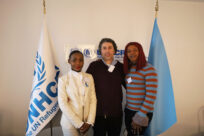
UNHCR launches the Refugee Speakers Programme 2024
20.03.2024To amplify the voices and stories of people who have been forced to flee their homes, UNHCR, the UN Refugee Agency, launched the Refugee Speakers Programme for the third year in a row.
-
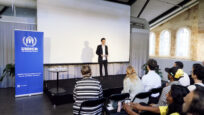
Call for applicants: Interested in sharing your experiences as a refugee?
04.12.2023UNHCR’s Representation for the Nordic and Baltic Countries is pleased to announce that the call for applicants for the Refugee Speakers Programme 2024 is now open. UNHCR is looking for aspiring public speakers in Sweden with a refugee background who are passionate about telling their story and advocating for the […]
-

UNHCR launches the Refugee Speakers Programme 2023 in Sweden and Lithuania
24.03.2023Following a successful programme in Sweden last year, UNHCR launches the Refugee Speakers Programme in Sweden and Lithuania to amplify the voices and stories of persons with refugee background.
-
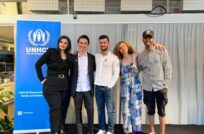
On World Refugee Day, UNHCR passed the mic to five young refugee speakers
23.06.2022To mark World Refugee Day, UNHCR passed the mic to four participants of the Refugee Speakers Programme and to a Burundian refugee and aspiring journalist in Kakuma camp in Kenya.
-

Creative workshops help refugees in Lithuania integrate
30.03.2022UNHCR’s partner Artscape celebrates the role of art and creativity in building connections for refugees and asylum-seekers in Lithuania.
-
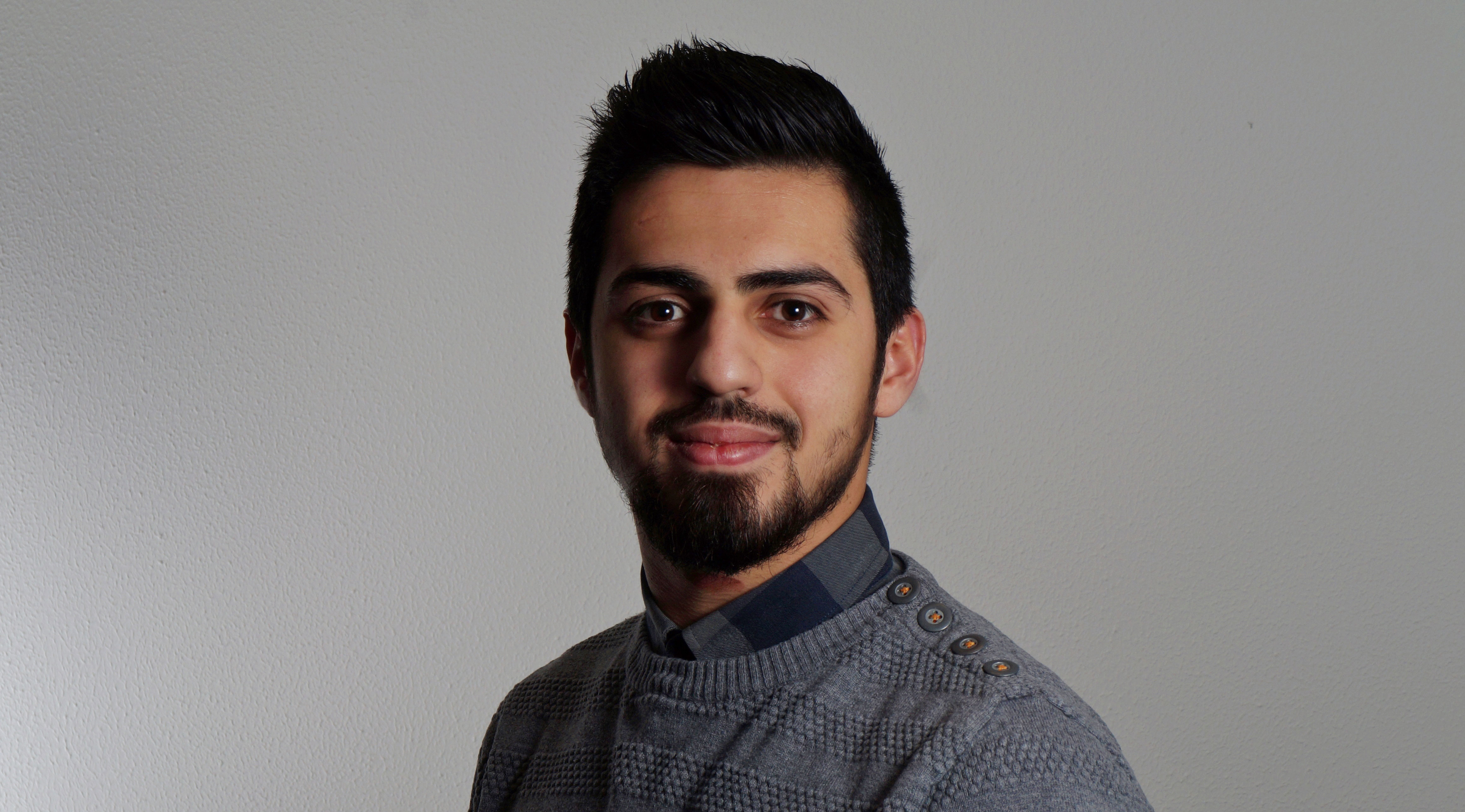
Khaled Ksibe
01.11.2016Entrepreneur and educator
-
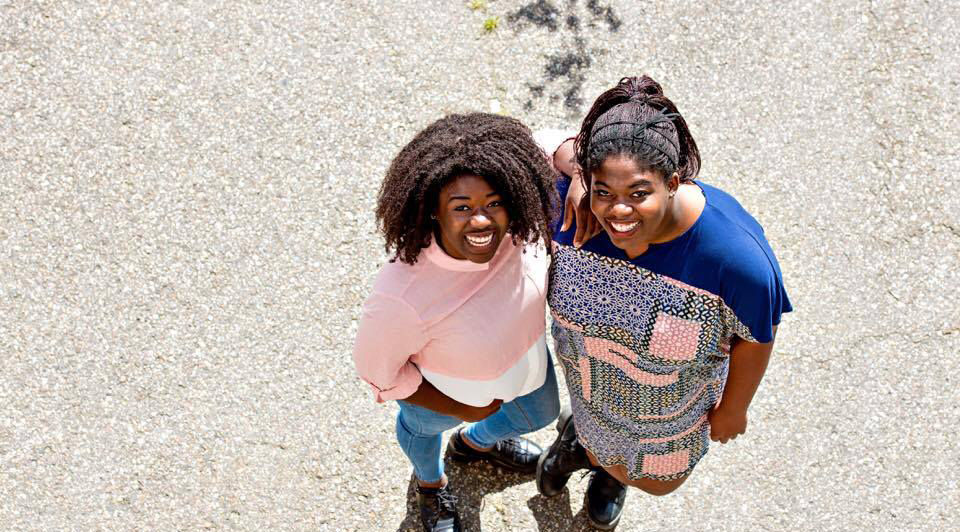
Anilde and Azilda Kaputu
01.11.2016Winners of Danish X-Factor 2016
-

Behrang Kianzad
01.11.2016Freelance journalist, lawyer and entrepreneur
-

Danjin Malinovic
01.11.2016Actor
-
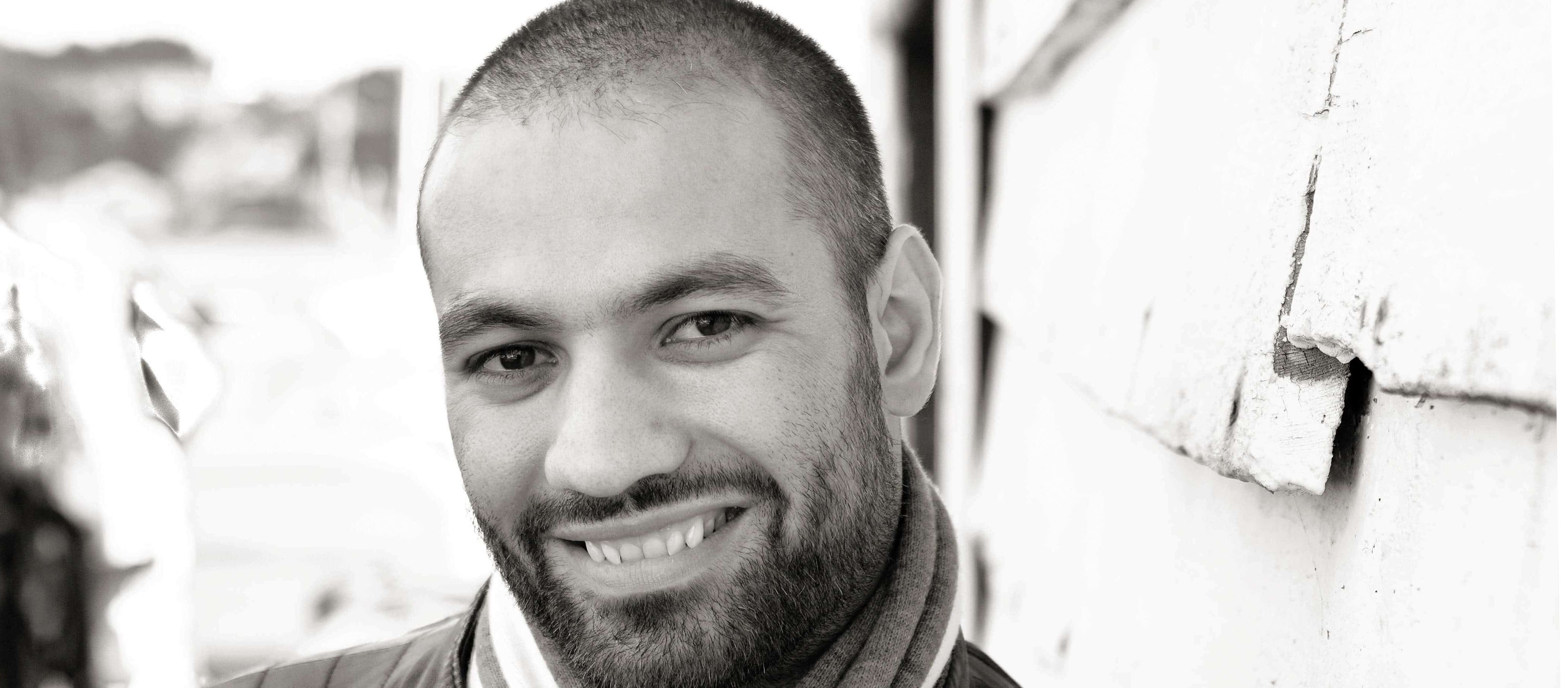
Marco Elsafadi
01.11.2016Basketball player and television host
